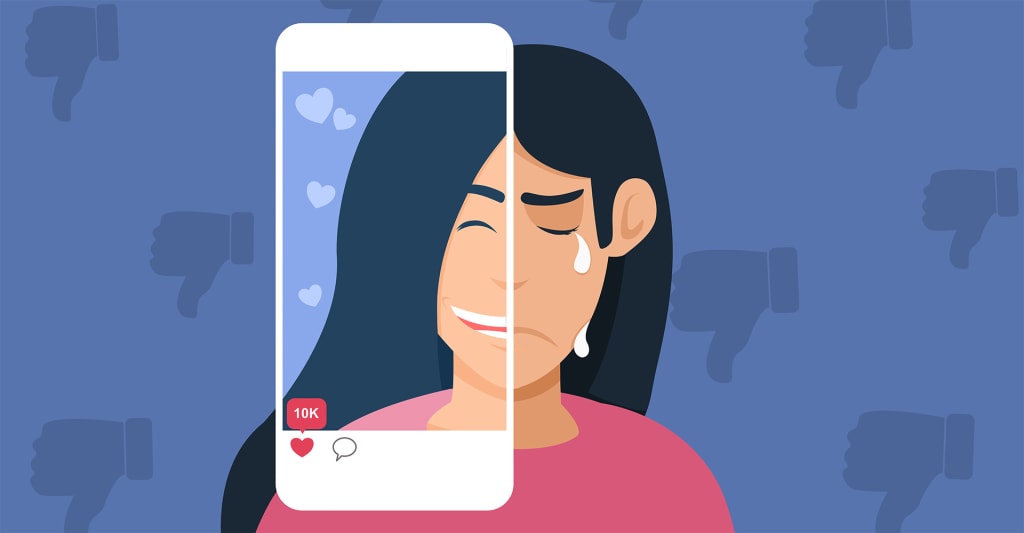Social Media and Mental Health
Social Media

Social media has become an integral part of modern life, allowing individuals to connect and communicate with one another across the globe. While social media platforms offer many benefits, there are also concerns regarding their impact on mental health. In recent years, research has shown that social media can have both positive and negative effects on mental health, with many experts highlighting the need for individuals to be mindful of their social media use.
Positive Impacts of Social Media on Mental Health
One of the most significant benefits of social media is its ability to connect people who may otherwise be isolated or lonely. This is particularly true for those who struggle with mental health issues, such as depression or anxiety, as social media can provide a sense of community and support. For example, individuals can connect with others who have similar experiences, share coping strategies and offer emotional support.
Social media can also serve as a source of information and education, providing users with access to resources, tools and strategies that can help improve their mental health. This includes online forums, mental health websites, and virtual therapy platforms. Additionally, social media can also help reduce the stigma surrounding mental illness by encouraging open and honest conversations about mental health.
Negative Impacts of Social Media on Mental Health
Despite its many benefits, social media can also have negative impacts on mental health. For example, research has shown that social media use can contribute to feelings of anxiety, depression, and loneliness. This is because social media can create unrealistic expectations and social comparisons, leading individuals to feel inadequate or unhappy with their lives. Additionally, social media can also be a source of cyberbullying and harassment, which can have devastating impacts on mental health.
Social media addiction is also a growing concern, with many individuals experiencing symptoms similar to those of substance abuse disorders. This includes a loss of control over social media use, neglect of other responsibilities, and withdrawal symptoms when unable to access social media. This addiction can lead to a range of negative impacts on mental health, including increased feelings of anxiety and depression.
Tips for Managing Social Media Use
While social media can have both positive and negative impacts on mental health, there are steps individuals can take to manage their social media use and promote mental wellness. Some tips for managing social media use include:
Limit social media use: Set boundaries around social media use, such as limiting use to a certain amount of time each day or avoiding social media during certain times (e.g., before bed).
Practice self-care: Prioritize self-care activities, such as exercise, spending time in nature, and connecting with loved ones.
Engage in offline activities: Make time for offline activities that promote mental wellness, such as reading, meditating, or practicing a hobby.
Be mindful of social comparisons: Recognize when social media is leading to social comparisons and take steps to mitigate these feelings (e.g., unfollowing accounts that trigger negative emotions).
Seek support: If social media use is impacting your mental health, seek support from a mental health professional or trusted loved one.
Conclusion
Social media can have both positive and negative impacts on mental health, making it important for individuals to be mindful of their social media use. While social media can provide a sense of community and support, it can also contribute to feelings of anxiety, depression, and loneliness. By setting boundaries around social media use, prioritizing self-care, and seeking support when needed, individuals can promote mental wellness and mitigate the negative impacts of social media on mental health.
Research has shown that social media use has been linked to higher levels of anxiety, depression, and loneliness, especially in young people. A study conducted by the Royal Society for Public Health in the UK found that social media use can negatively impact mental health in several ways. For instance, it found that social media can contribute to the fear of missing out (FOMO), poor sleep, and body image issues.
FOMO is a feeling of anxiety or insecurity that arises when people feel they are missing out on experiences that others are having. Social media often exacerbates FOMO by showcasing the experiences of others, making people feel like they are not living their best lives. Poor sleep is another issue that social media use can cause. The bright screens of devices can interfere with the production of the sleep hormone melatonin, leading to difficulty falling asleep and poor sleep quality. Finally, social media can also contribute to body image issues, as users are bombarded with images of seemingly perfect bodies and lifestyles that can be difficult to attain.
Cyberbullying is another concern associated with social media use that can lead to mental health issues. Cyberbullying refers to any kind of bullying that takes place online, including harassment, intimidation, and the spreading of rumors or hurtful comments. According to a study conducted by the Cyberbullying Research Center, 34% of students in the US have experienced cyberbullying. Cyberbullying can have serious consequences for mental health, including increased feelings of anxiety, depression, and even suicide.
Social media addiction is another growing concern, as individuals may become dependent on the use of social media to the point where it interferes with their daily lives. Like substance abuse, social media addiction can lead to withdrawal symptoms, such as irritability and restlessness when unable to access social media. It can also lead to negative impacts on mental health, such as increased feelings of anxiety and depression.
To mitigate the negative impacts of social media on mental health, it is important for individuals to practice self-care and prioritize their mental wellness. This includes setting boundaries around social media use, such as limiting screen time or taking breaks from social media altogether. It also involves engaging in offline activities that promote mental wellness, such as spending time in nature, practicing mindfulness, or connecting with loved ones.
It is also important to recognize the potential negative impacts of social media on mental health and take steps to mitigate them. This can include unfollowing accounts that trigger negative emotions or seeking support from a mental health professional or trusted loved one.
In conclusion, social media has both positive and negative impacts on mental health, and it is important for individuals to be mindful of their social media use. While social media can provide a sense of community and support, it can also contribute to feelings of anxiety, depression, and loneliness. By setting boundaries around social media use, prioritizing self-care, and seeking support when needed, individuals can promote mental wellness and mitigate the negative impacts of social media on mental health.
About the Creator
Jeno Trashan
Story writer Jeno Trashan creates captivating tales filled with adventure, emotion, and imagination. A true lover of words, Jeno weaves unforgettable stories that transport readers to far-off lands.






Comments
There are no comments for this story
Be the first to respond and start the conversation.